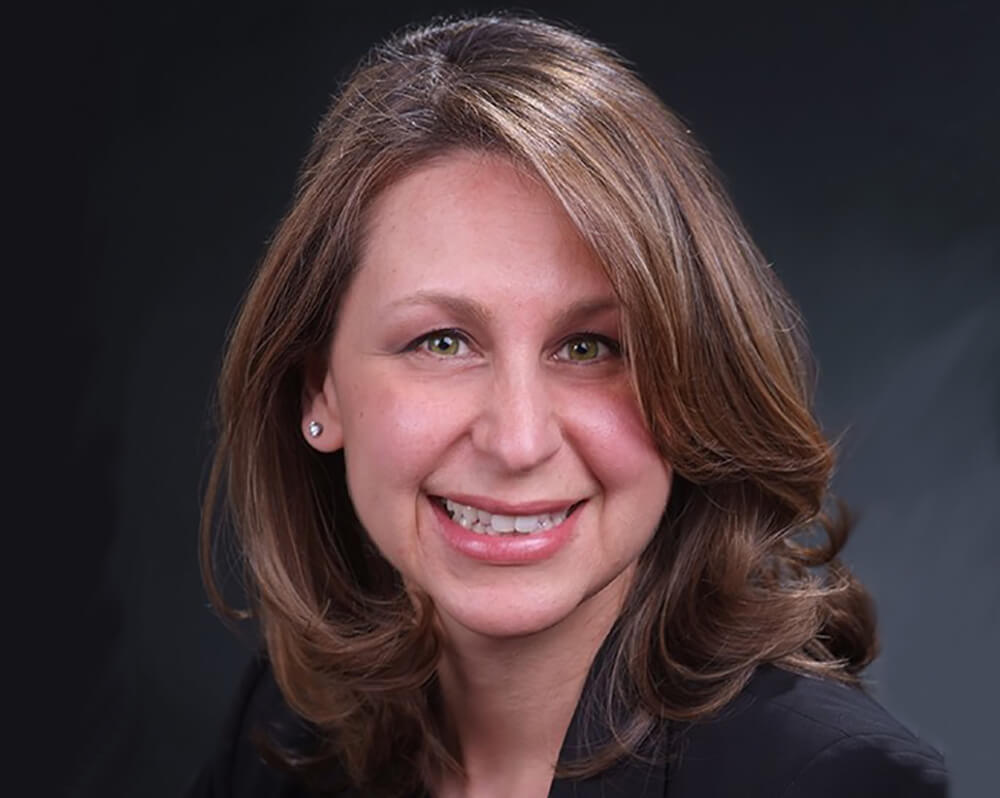From Touro to Capitol Hill
Karen Paikin Barall, Director of Government Relations at Hadassah, on the Role of a Lobbyist and National Public Policy Advisor

A Touro alum discusses her career designing and implementing local, state and federal advocacy agenda for Hadassah Women’s Zionist Organization of America, and offers advice for students interested in public policy.
What does it mean to be a professional lobbyist?
Lobbyists are professionals who work to lawfully influence policies, decisions and actions of government officials. Lobbyists’ aim is to change laws and regulations so they reflect the beliefs and goals of the organizations lobbyists represent.
Can you describe your current role as Director of Government Relations at Hadassah?
I am Hadassah’s chief lobbyist and public policy advisor, meaning, I represent more than 300,000 members of the organization around the country. I am Hadassah’s voice and face on Capitol Hill and with the Executive Branch. I work with Hadassah’s leadership to design and implement the organization’s advocacy agenda at the federal, state and local levels.
What is involved on a day-to-day basis?
It varies depending on the time of year, current events and what is going on at Hadassah. Most days include at least one meeting with colleagues, a meeting with a congressional office or someone in the Administration, conversations with counterparts at other organizations and perhaps a meeting with the other members of a coalition that Hadassah is part of.
How did you choose this career path?
I’ve always been interested in people and current events — I was active in a Zionist youth movement and followed Israeli politics — but I didn’t focus on domestic policy until I took Dr. David Luchins’s political science classes. Dr. Luchins opened my eyes to the complex and fascinating world of policy and everything that goes into lawmaking in the United States. I also had the opportunity to intern for Senator Daniel Patrick Moynihan, which is when I learned how a Senate district office operates, and for the Conference of Presidents of Major Jewish Organizations, where I learned how the Jewish community interacts with government.
What do you love about the field?
I look at every issue as a puzzle to solve — learn all the facts, consider all the possible approaches, strategize on the best one. Each piece that falls into place brings me one step closer to the best outcome for the organization or cause I represent.
What do you find most challenging?
We live in an age in which nothing happens in a vacuum. One careless tweet and your reputation is stained forever. People like to put labels on things, like left or right, conservative or liberal. How you’re perceived determines your access and effectiveness, and missteps can have permanent consequences. What I find most challenging is balancing mitigating risk and being effective.
What kind of impact has your work had, i.e., legislation passed on key issues or policies enacted?
I am extremely proud of two bills that were signed into law last session. The first is the Never Again Education Act, which Hadassah played a leadership role in passing and which supports Holocaust education in U.S. schools. It was a team effort throughout the organization and even though I was on the ground in Washington, I had an incredible army of Hadassah women pushing for the bill’s passage from their districts around the country. The second piece of legislation was a bill to elevate to the rank of Ambassador the position of the State Department’s Special Envoy to Monitor and Combat Anti-Semitism. It is essential that whoever serves in that position has the tools necessary to fight the rising tide of antisemitism, and the rank of Ambassador guarantees that the person in that role does.
How did your Touro education prepare you for your career?
While I was not observant when I started at Touro, now Lander College for Women, my passion for Israel led me to want to learn more about Judaism and I didn’t want to go to a secular college and be a Judaic studies major. Living in NYC and learning alongside other women were also pluses. So was the opportunity to take on leadership roles. I was elected Student Government President and organized rallies and I set up a school newspaper and a “Dead Poets Society.” The encouragement and mentorship I received at Touro gave me confidence and a sense of purpose and instilled in me the Jewish values that I live by today.
What advice do you have for students interested in advocacy and Jewish communal service?
First, I’m a big believer in on-the-job training and internships. There is no substitute for academic training, but you can learn as much outside the classroom as inside it. Second, when you get your first job, remember that the best way to learn is to listen and observe, not to tell your new, more experienced colleagues how they should do things. Like every other field, the Jewish communal world and the world of advocacy have their own idiosyncrasies and ways of operating, and it can take a while to find your footing. Third, be tenacious but respectful. Being persistent is important, but so is likability.

